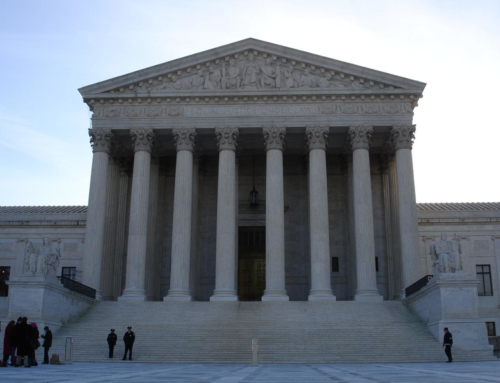In her report on the BBC’s response to Jimmy Savile, Dame Janet Smith contended that no one at the top of the BBC ever heard about Savile’s decades-long history of rape, though much of it occurred on the BBC’s premises. If we are to accept her conclusion, then why should we believe that the pope knew about molesting priests half-way around the world? After all, the BBC is tiny compared to the Vatican.
BBC senior management oversee approximately 23,000 workers; the pope oversees more than 5,000 bishops, 416,000 priests, 40,000 deacons, 54,500 non-ordained male religious; 683,000 female religious; and 117,000 seminarians. They work in 3,000 dioceses serving 1.27 billion members in 220,000 parishes in every part of the globe.
The BBC has produced several reports and documentaries on priestly sexual abuse, holding Pope John Paul II and Pope Benedict XVI culpable for what happened. The evidence, as we shall see, is speculative at best and non-existent at worst.
“Suing the Pope” was a 2002 documentary about Colm O’Gorman. He says he was raped by a priest when he was 14 and that it lasted for a few years. He told no one about it until 1995, when he was 29. Did “the Church” ignore his story? Not at all. The accused priest was arrested that same year; he committed suicide four years later. An admission of negligence and payment for damages was forthcoming, but O’Gorman wasn’t satisfied: he sued the bishop, the Papal Nuncio, and Pope John Paul II. Obviously, O’Gorman got nowhere, but that he would even try to pin this on the pope speaks volumes about his agenda.
The BBC documentary was not simply about O’Gorman—he was hired to produce it. Of course, none of Savile’s many victims would ever be given the chance to produce a BBC documentary detailing what happened to them.
The BBC was so happy with O’Gorman’s self-documentary that he was assigned another project, the result of which was the 2006 documentary, “Sex Crimes and the Vatican.” It was a hit job on Pope Benedict XVI, as well as on the Vatican as a whole. This was followed in 2010 by another Panorama program, “What the Pope Knew”; it also smeared Benedict (O’Gorman was not involved in this one).
As will become evident, much of the information in both documentaries was either misleading or bogus.
“Sex Crimes and the Vatican” contended that in 2001, Cardinal Joseph Ratzinger, head of the Congregation of the Doctrine of the Faith (he became Pope Benedict XVI in 2005), issued a “secret Vatican edict” ordering bishops around the world to put the interests of the Church ahead of the welfare of the victims of priestly sexual abuse. According to the BBC documentary, bishops were expected to encourage victims to keep quiet. The 2001 report was said to be an updated version of the 1962 document, “Crimen Sollicitationis” (the Crime of Solicitation).
I read these documents, wrote about them, and discussed them on television. What the BBC, and others, said about them is a total falsehood (CBS was the worst in the U.S.). They manifestly do not reveal an attempt by the Vatican to put the interests of the Church above the interests of victims, nor do they represent an attempt to silence anyone. No wonder so many bishops in the U.K. reacted so strongly against the documentary’s lies. The distortions are many.
First, the 1962 document did not apply to sexual misconduct—it applied only to sexual solicitation. Second, the only venue that was addressed was the confessional. Third, because the policy was specifically aimed at protecting the secrecy of the confessional, it called for an ecclesiastical response: civil authorities were not to be notified because it involved a sacrament of the Catholic Church, not a crime of the state.
Fourth, if a priest were found guilty, he could be thrown out of the priesthood. Fifth, if the penitent were to tell someone what happened (perhaps another priest), he or she had 30 days to report the incident to the bishop or face excommunication. If anything, this proves how serious the Vatican was about an offense—it threatened to punish the penitent for not turning in the guilty priest. Sixth, the 1962 document was superseded by the 1983 Code of Canon Law and the norms established in 2001 for dealing with serious crimes involving the sacraments.
In March 2010, the BBC ran a story, “Pope Accused of Failing to Act on Sex Abuse Case.” Taking the side of the accusers, the BBC blamed Cardinal Ratzinger for ignoring pleas by the victims of Milwaukee priest Fr. Lawrence Murphy. No one doubts that Murphy was wicked: he abused as many as 200 deaf boys extending back to the 1950s. What can be contested—indeed refuted—is the charge that Ratzinger bore some of the blame.
Though Murphy’s crimes took place in the 1950s, none of the victims’ families contacted the civil authorities until the mid-1970s. After a police investigation, the case was dropped. Fast forward to 1996—that was the first time the Vatican learned of the case. Cardinal Ratzinger, who was in charge of the office that was contacted, could have simply dropped the case given that the statute of limitations had expired. But he didn’t: he ordered an investigation. While the inquiry was proceeding, Murphy died.
“What the Pope Knew” was a two-part story that aired in September 2010, just days before Pope Benedict XVI arrived in England. The documentary tried to tag him with irresponsibility for his handling of cases in the U.S. and Germany. Professed enemies of the Church in the U.S., such as Minnesota lawyer Jeffrey Anderson, were interviewed; they were allowed to make the most sweeping and unsupportable comments imaginable, without being challenged. The show focused on two priests: Fr. Stephen Kiesle of California, and Germany’s Fr. Peter Hullermann.
In 1978, Fr. Kiesle was convicted of sexually abusing two boys and was suspended by his local church. His superior, Bishop John Cummins, wanted him defrocked in 1981, but the Vatican wanted more information. Cardinal Ratzinger had taken over the office in charge of these matters only a week before the Vatican made its ruling. Following Church norms at the time—the BBC makes this sound conspiratorial—Ratzinger said he could not defrock Kiesle because no one under 40 could be laicized, and the priest was in his thirties. Kiesle could have been ordered to stand trial, but because he was so close to 40, a decision was made to wait. On February 13, 1987, the day before Kiesle’s 40th birthday, he was defrocked.
It is important to note that Kiesle was removed from ministry following his conviction, and that in 1982, while still technically a priest, Kiesle married the mother of a girl he had abused in 1973. But to mention this fact would be to shift blame away from the pope, and that is not something that would fit with the BBC’s narrative.
The BBC also criticized Cardinal Ratzinger’s handling of Fr. Peter Hullermann, a priest who was convicted of sexually abusing boys while serving in Grafting, Germany. After his conviction, he was transferred to Munich for therapy. At the time, therapy was the preferred method for dealing with abusers; this was true everywhere in the Western world. Once the therapy sessions ended, and Hullermann was certified as good to go, he was placed in a new parish.
How much did Archbishop Ratzinger know about Hullermann’s case? It was his deputy who placed Hullermann in the new parish and who knew of the details of his case. From accounts published by the New York Times, we know that Ratzinger’s office “was copied on a memo” about the transfer. But we also know from Church officials that sending memos was routine, and that they were “unlikely to have landed on the archbishop’s desk.”
Conclusion
If there is one BBC official who figures prominently in both the Savile case and the BBC’s documentaries on the Catholic Church, it is Mark Thompson. He was Director General from 2004-2012, and he claims he never heard about Savile’s record of abuse while working there. He was also in charge of the BBC when it aired stories alleging that the hierarchy of the Catholic Church knew about abusive priests all over the world. He left his top post at the BBC in 2012 for another top post: he became president of the New York Times Company.
Regrettably, Dame Janet Smith rarely mentions Thompson in her lengthy report. But she does quote him as saying, on the day Savile died, October 29, 2011, “we shall miss him greatly.” Both men worked at the BBC for decades, but all Thompson knew about him, he says, is that he was a great entertainer.
If Thompson didn’t know about Savile’s sordid past when he died, which is implausible, he certainly knew before the end of the year. He conceded that he was told at the 2011 Christmas party that the BBC decided not to run the “Newsnight” exposé on him. He didn’t have much choice: BBC reporter Caroline Hawley bared the truth. In addition, Thompson was given many daily news clips about Savile, but he says he never read any of them.
On October 10, 2012, the chairman of the BBC Trust, Lord Chris Patten, spoke about the role that BBC officials, including Thompson, played in the decision to stop the BBC report on Savile. He said they “all knew there was an investigation and did not intervene to stop it.” But then something strange happened: Lord Patten’s office subsequently put out a statement saying that he “misspoke.” Tory MP Sir Roger Gale responded by saying that Lord Patten must go.
Even if we grant Thompson the benefit of the doubt on these matters, he did one thing before he left the BBC for his New York Times job that cannot be ignored. Thompson authorized his lawyers to write a letter to The Sunday Times in London threatening to sue if they decided to publish a detailed article about Savile. Unavoidably, the letter summarized the accusations against him, thus undercutting Thompson’s claim that he never even heard about Savile’s sex crimes while he was at the BBC.
So what did Thompson say when questioned about this? He said he never read the letter—the same letter whose content he authorized! Thompson then refused any further interviews, even turning down the New York Times. To top things off, his personal advisor said of the letter, “It’s not clear if he was shown it, but he doesn’t remember reading it.”
Lying. Covering up. Isn’t this what the BBC accuses the Vatican of doing? To be sure, high-ranking clergy in some dioceses did lie and cover up, but to believe that Thompson and other senior BBC officials didn’t know about Jimmy Savile, but the pope and his staff knew about abusing priests half-way around the world, is too much to swallow.
The BBC got off easy with Smith’s report; conversely, the BBC’s treatment of the Church was unfair.







